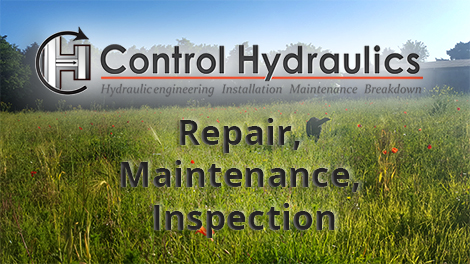Is your Hydraulic maintenance ready for the new season?
- April 4, 2017
- Posted by: stephen Douglas
- Category: hydraulics, Maintenance, News, Service

Have you prepared your hydraulic plant maintenance?
The leading cause for hydraulic systems problems are component and system failure. The proper maintenance on a hydraulic system has two areas of concern;
Preventive Maintenance – the key to the success of maintenance programs
- Inspecting a machine’s hydraulic system should be a part of an operator’s daily routine. By doing this, any issue that needs to be addressed is caught early.
- Inspect every machine, every day, the same way.
- Go through the checklist at the beginning and end of every shift and be consistent from machine to machine.
- Carry out periodical maintenance inspections on each system
Corrective Maintenance – if not addressed lead to larger failures
- This is work which involve the repair or replacement of components failing or breaking down.
- The need for Corrective maintenance should be identified during regular inspection, then planned and scheduled, to be done during a routine plant outage.
Check ups should address anomalies such as strange noises, vibrations, or parts showing a change. The sooner problems are detected and corrected, the better, as a small problem can easily lead to larger issues
Small preventive measures can keep hydraulics equipment running smoothly.
Best practice is to implement a daily checklist including points such as:
- Are there any oil leaks on hydraulic lines
- Oil levels are ok
- Check loose or worn part such as bolts, as they might have been loosened through vibration.
- The condition of hoses and pipe work
- Is the unit keeping the correct temperature?
- Check that the unit is clean – dirt contaminating the unit is one of the biggest reasons for preventing optimal efficiency
We are entering into the busier time of year, and now might the ideal time to start scheduling the assessment and service of your hydraulics equipment. By keeping your hydraulics clean, it helps keep it in good working order, and this is is by far the most efficient way to keep your plant running smoothly and cost efficiently.
